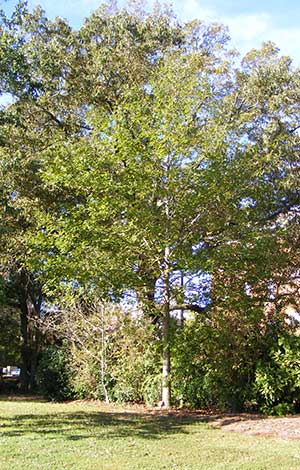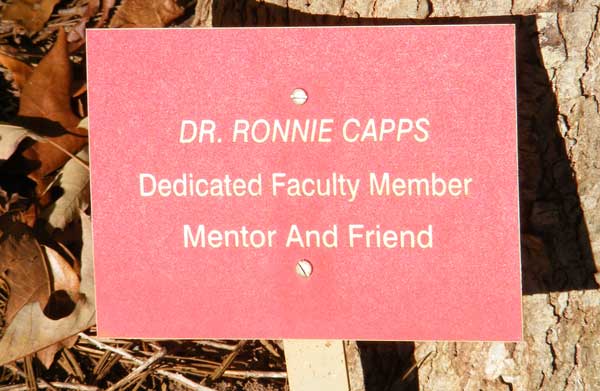For More Info...Dr. William Rodney “Ronnie” Capps
 William Rodney “Ronnie” Capps taught Educational Leadership (EDL) in the College of Education at Troy University Dothan Campus, 1998-2004. Capps began his career as a teacher and retired as a Currituck County Schools Superintendent, then became a professor at Troy State University at Dothan, AL. He was selected as the College of Education Outstanding Faculty Member for 2002-2003, retired in 2004, and passed away Oct. 13, 2006.
William Rodney “Ronnie” Capps taught Educational Leadership (EDL) in the College of Education at Troy University Dothan Campus, 1998-2004. Capps began his career as a teacher and retired as a Currituck County Schools Superintendent, then became a professor at Troy State University at Dothan, AL. He was selected as the College of Education Outstanding Faculty Member for 2002-2003, retired in 2004, and passed away Oct. 13, 2006.
[Sources: Find Articles at BNET, Honor Transitions, School Administrator, Jan 2003 http://findarticles.com/p/articles/mi_m0JSD/is_1_60/ai_95954375/?tag=content;col1 [accessed December 10, 2009]; “Faculty,” Undergraduate Bulletin / Graduate Bulletin, Troy State University Dothan, 2001-2002; “William Rodney ‘Ronnie’ Capps,” Twiford Funeral Homes, http://www.twifordfh.com/william-rodney-ronnie-capps/ (accessed October 13, 2014).]
NORWAY MAPLE
 “Acer platanoides is a fast-growing, deciduous tree commonly 40 to 50 feet in height in cultivation, but can reach up to about 100 feet. It grows in temperate zones (USDA hardiness zone 4 through 7A). Typically, the tree has an oval or rounded crown with a central leader and heavy, dense leaf canopy. The bark of the tree is gray and very smooth as a sapling, developing shallow and regular grooves with age. Acer platanoides is common throughout the Northeast, ranging as far south as North Carolina and Tennessee and as far west as Minnesota, and has a broad distribution due to its extensive planning as a street and ornamental tree and its successful naturalization to nearby woodlots, forest edges, roadsides and fragmented forests. From there it has moved on to less disturbed habitats.” [Source: http://www.columbia.edu/itc/cerc/danoff-burg/invasion_bio/inv_spp_summ/Acer_platanoides.html ]
“Acer platanoides is a fast-growing, deciduous tree commonly 40 to 50 feet in height in cultivation, but can reach up to about 100 feet. It grows in temperate zones (USDA hardiness zone 4 through 7A). Typically, the tree has an oval or rounded crown with a central leader and heavy, dense leaf canopy. The bark of the tree is gray and very smooth as a sapling, developing shallow and regular grooves with age. Acer platanoides is common throughout the Northeast, ranging as far south as North Carolina and Tennessee and as far west as Minnesota, and has a broad distribution due to its extensive planning as a street and ornamental tree and its successful naturalization to nearby woodlots, forest edges, roadsides and fragmented forests. From there it has moved on to less disturbed habitats.” [Source: http://www.columbia.edu/itc/cerc/danoff-burg/invasion_bio/inv_spp_summ/Acer_platanoides.html ]
